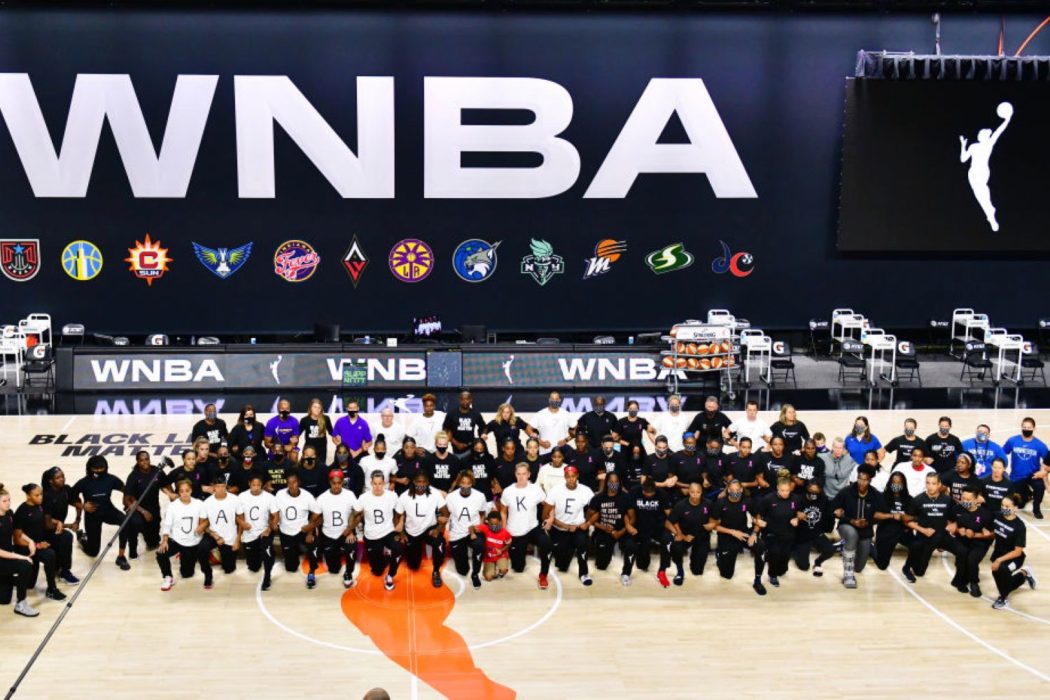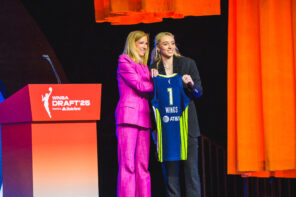One would be hard-pressed to find someone who is not happy that 2020 is in the rear-view mirror and we can now turn our calendars to the new year of 2021.
After all, to say that 2020 was simply a bad year would be an understatement. It was a debacle and a travesty outside of a few bright spots here and there.
It is safe to say that sports had plenty of “shining moments” in lieu of an NCAA basketball tournament. Even though many leagues – including the WNBA – were confined to bubbles, whether they were in Florida, Utah, Ontario or Alberta, the message that athletes sent was heard far and wide.
In lots of ways, it was the WNBA that set the tone for this newfound wave of activism that is a staple of the modern athlete. In 2016, there was much protest in the wake of police shootings of Alton Sterling and Philando Castile – including on-court protests by at least three teams – the Indiana Fever, Minnesota Lynx and New York Liberty.
Colin Kaepernick deserves his flowers too. After all, a simple, harmless gesture such as kneeling for the national anthem to protest police brutality had him virtually exiled from the NFL and he has not been hired back since.
Then came George Floyd. Then came Breonna Taylor. Then came Jacob Blake. Today’s Black athlete has learned from the Muhammad Ali/Colin Kaepernick/Curt Flood/Billie Jean King example and it is an inspiration for why today’s athletes are so socially conscious.
The year 2020 proved one thing in particular that the days of the Black athlete, particularly the Black woman athlete simply being entertainment for (majority white) audiences is over. Black athletes have voices. Black athletes have backgrounds. Black athletes have lives and those lives matter.
Black women athletes have always been tone-setters. Whenever detractors try to say that they want politics out of sports, they only mention when Black and Brown athletes take a stand for justice. These same detractors are silent when rich (mostly white male) owners try to extort local communities for millions of tax dollars for football stadia that ought to go, instead, to fund education, healthcare, the arts, housing, libraries and feeding and sheltering the homeless.
The WNBA, NWSL, NWHL and other women’s leagues are change agents in framing the conversation of how we view the women athlete. Just as Billie Jean King could not do it all by herself, the Williams sisters could not do it all by themselves.
It is also a message that is resonating with an increasing number of viewers. Viewership of NWSL games in its Challenge Cup bubble in Utah skyrocketed. The W also experienced an increase in Finals ratings not to mention an increase in social media interactions.
Look at other leagues, too – including the NBA. In many ways, the coverage that NBA players and teams received for boycotting games in response to Jacob Blake was an example originally set by the WNBA.
Why? Because the vast majority of WNBA players are Black women. And while the spotlight may be shining brightly on these multi-talented women (of all colors, creeds and backgrounds) while in the midst of a WNBA season, they are still (mostly Black) women when they trade in their team jerseys for street clothes.
Women athletes used their platform to the fullest to affect the social conversation around race that was in front of our faces in 2020. Whether it was to rally in the streets to protest the killings of George Floyd and Breonna Taylor or whether it was to encourage as many people as possible to participate in last year’s presidential election, it was a year where women found firm footing in our national discourse.
And with it, they altered the future of sports. Women athletes are not only the future because they are slowly, but surely, earning more respect. They are the future because they have made athletes realize that they can use their voices for good and that the masses will listen because of their overall status.
Women athletes in the WNBA and other leagues decided in 2020 that they are tired of simply being near the table while the good ol’ boys club talks amongst themselves.
They decided they would make a way at the table – and that they would be part of the conversation whether those good ol’ boys liked it or not.




